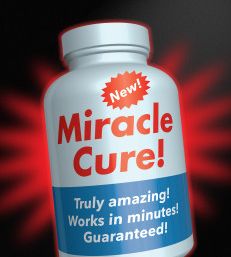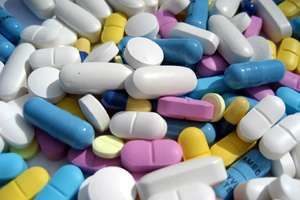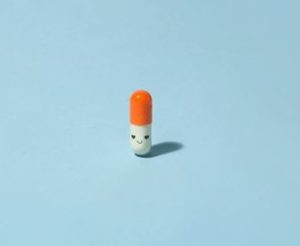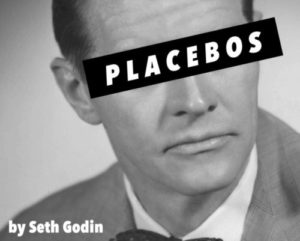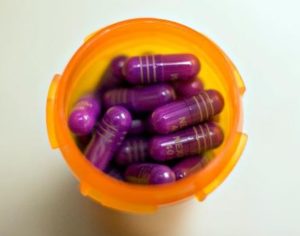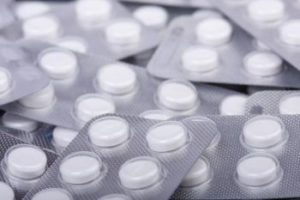Jo Marchant, author of Cure, explains why the mind’s ability to heal the body is now being taken seriously by scientists who question alternative medicine. Read the Guardian interview here.
All posts by Michael Doneman
How Drug Companies Game the Placebo Effect
” … Drug companies have a strong financial incentive to game (i.e. fake) drug testing. To develop a new drug, they invest over a billion dollars and many years, with the reward contingent upon negotiating a sequence of RCTs, which opens the path to a patent-protected monopoly.”
Disturbing stuff. Read the full article.
Is it genetic?
More on the Americans developing a ‘tolerance’ to placebos. Can the answer be genetic?
In May, researchers from Harvard Medical School described a set of variants in 11 genes that they say are linked to the placebo effect and called it the ‘placebome.’ Scientists have known for quite some time that some people are more prone to experiencing the effect than others. And early investigations implicated the body’s natural pain control systems, including the opioid-like chemicals made and released in our own brains.
The Placebo Effect: Can You Be Tricked Into Exercising More?
It’s true; in workouts and exercise we all get random adrenaline rushes that allow us to give max effort, even when the tank is empty. But what about taking pre-workout supplements, which promise to give you that extra boost? Do they really work, or is it more just the mental idea associated with it? And how much power does your mind actually have? A recent study shows just how much of physical fitness is mental. Read more about placebo ‘encouragement’ in exercise here.
Re-framing the placebo effect and informed consent
(Medical Xpress)—Imagine that your doctor knows from evidence-based studies that if he tells you about certain, small side-effects to a particular drug, you are significantly more likely to experience that side effect than if he did not tell you about it. Given the three values of autonomy, beneficence, and nonmaleficence, what should he do?
On the flip side, what if your doctor knew that statistically patients who are gradually weaned off of a chronic pain medication by decreasing their dosage until it is a placebo will still experience relief from their pain as a result of habituation? Should the doctor lie to you about your dosage in an effort to help your chronic pain while mitigating side effects?
Mark Alfano, bioethicist at Delft University of Technology in the Netherlands writes a compelling argument for re-defining our views of placebos and placebo effects and how, by defining them in terms of classical conditioning, expectation fulfilment, and somatic attention and feedback, the ethics of informed consent changes by doing so. His is the target article in this month’s issue of the American Journal of Bioethics.
More information: “Placebo Effect and Informed Consent” American Journal of Bioethics, 15:10, 3-12.
Americans Are Strangely Likely To Fall For Fake Pain Drugs
Research published in August 2015 (Increasing placebo responses over time in U.S. clinical trials of neuropathic pain) and published in the Journal Pain focused on over two decades’ worth of clinical trials – 80 in all. The results showed that, as many have speculated, our placebo response is indeed getting stronger. And, because one measure of a drug’s effectiveness is its ability to perform better than the placebo, more pain-drug trials are failing than in the past. But, interestingly, the researchers found that this increase was only true for studies conducted in the U.S.
Nature RX: Nature as Placebo
Set in the world of a spoofed prescription drug commercial, Nature Rx offers a hearty dose of laughs and the outdoors – two timeless prescriptions for whatever ails you. Side effects may include confidence, authenticity, remembering you have a body, and being in a good mood for no apparent reason.
More from Seth Godin on placebos and marketing
We’ve published his work here before, but it’s time for some more truisms on the placebo effect from marketing guru Seth Godin, one of the godfathers of ‘viral marketing’ (in Crucial Elements for the placebo effect). Seth’s really into placebos!
….
Placebos, used ethically, are powerful tools. They can cure diseases, make food taste better and dramatically increase the perceived quality of art. They can improve the way teachers teach, students learn and we judge our own safety.
….
They do best when they improve something that is difficult to measure objectively.
….
Argue all you want about whether or not you want to be buying or selling placebos, but it’s quite likely that the right placebo with the right story can dramatically increase certain outcomes.
If you want to improve performance, the right placebo is often the safest and cheapest way to do so. The opportunity is to find one that’s likely to work, and to market it in a way that’s ethical and effective.
….
If you like Seth’s style, he has another blog post on the placebo effect in marketing here (Marketing of the placebo: Everyone gets their own belief) and a whole downloadable essay/course here (Placebos) which contains some keen – and entertaining! – thinking on the placebo effect as it relates to marketing (which to Godin, is critical to more in our lives than we imagine!)
….
Facing a long plane trip with a nasty cold, I headed over to the health food store.
“Excuse me, do you have any placebos? I have a really horrible cold… I’ll take the strongest one you’ve got.”
She looked at me with pity. “A placebo?”
“Yes, please.”
“Do you know which company makes that? I don’t think we have any placebos?”
I waited for a second, thinking hard about what was happening.
“Hey Sylvia,” she yelled, “there’s a guy out here who wants some placebo, but he doesn’t know who makes it. Do we carry that?”
Sylvia didn’t know.
The Miraculous Power Of The Placebo: Why Success Starts In Your Head
“There’s a tendency to say, ‘Oh, placebos are nothing, they’re a fool’s paradise,’” MacCuish says. “What we should be doing is looking more closely into why a placebo has the effect that it does.”
The Miraculous Power Of The Placebo: Why Success Starts In Your Head
“When effective drugs do exist, placebo effects can enhance their impact.”
More research from Ted Kaptchuk, in the New England Journal of Medicine.
“Placebos don’t necessarily provide cures, but they provide relief. In medical situations in which no cure is available, supportive and attentive health care can help patients to feel better, and when effective drugs do exist, placebo effects can enhance their impact.”
And …
“A significant body of research has resulted in a shift from thinking of placebos as just ‘dummy’ treatments to recognizing that placebo effects encompass numerous aspects of the health care experience and are central to medicine and patient care. Recent scientific advances have enabled us to identify a trove of neurotransmitters and detect relevant neural brain pathways as well as genetic markers that help explain the biology of the placebo effect.”




